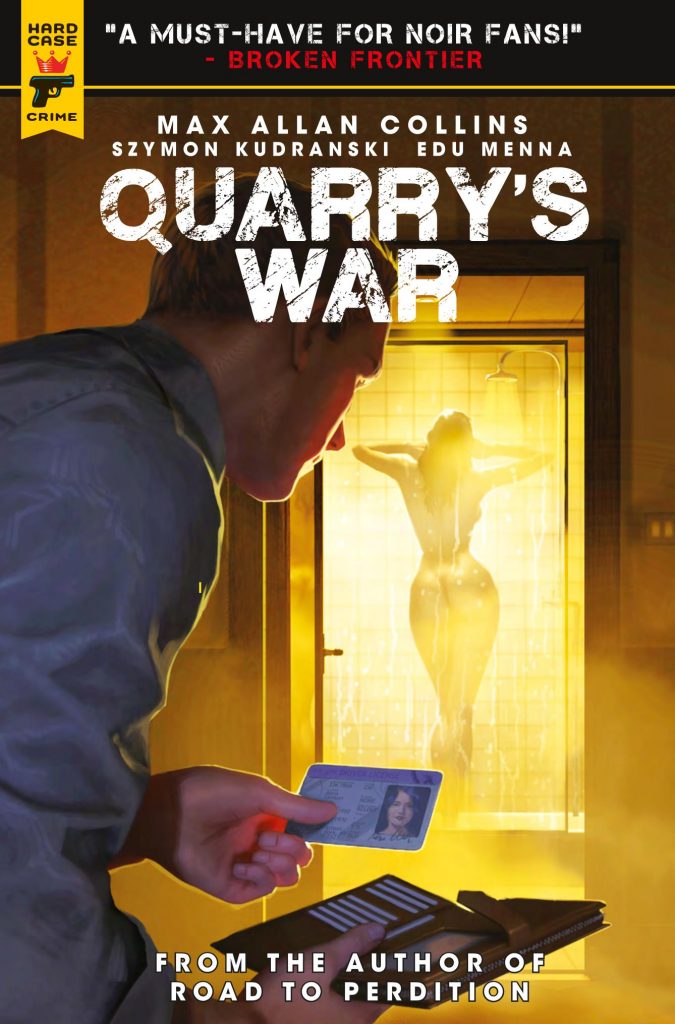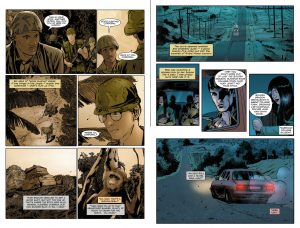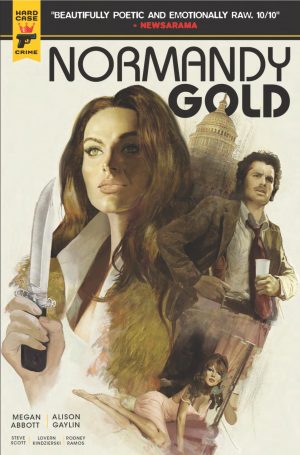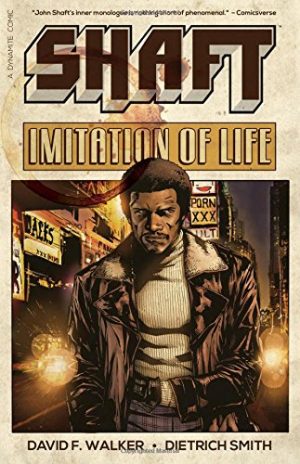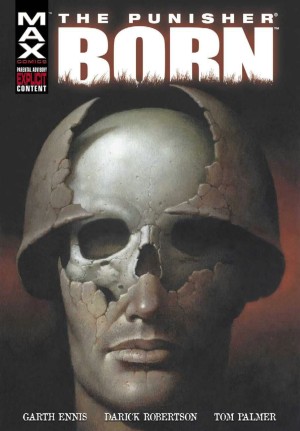Review by Frank Plowright
Quarry is a 1970s hitman, taking his war experience as a sniper in Vietnam to American streets, and Quarry’s War is a character study of the man and his experiences.
Max Allan Collins is crime fiction writer with a long and distinguished track record (just check his Wikipedia page), from which Road to Perdition is his best known work beyond the crime market. However, Quarry’s also been a success, starring in over a dozen novels and a short run Cinemax TV show. It all builds a picture of Collins as a man who knows what he’s doing and is as professional as Quarry about it. This is noted because to tell Quarry’s story as a graphic novel, over the first three chapters Collins opted for the awkward and frustrating storytelling device of a page set in the USA, either past or present, followed by a page set in Vietnam. It serves neither story well, interrupting the flow of both, where as a little greater immersion in either world before switching would have crafted a more satisfying read.
As it is the format constantly annoys, in telling two parallel stories that eventually come together. In Vietnam there’s a woman who’s abducting, torturing and murdering any white man she can get her hands on, while back in the USA Quarry begins working for the Broker, carrying out hits as ordered until he runs into a real surprise with his latest target.
Szymon Kudranski draws the opening chapter in his concise style, establishing the period and the locations, immersing us in Vietnam and Chicago, but there’s an anonymity about Quarry himself, also cultivated by Collins. For all the time spent with Quarry’s narrative captions, there’s little indication of the person within, why he has a moral ambivalence, what he really enjoys. He floats through events without ever revealing himself. In his afterword Collins notes PTSD forms part of Quarry’s personality, explaining his detachment, but without that knowledge it’s a big leap for a reader to make. Edu Menna illustrates the remainder of the story, and he suffers by comparison with Kudranski, his line not as delicate and his people sometimes lacking weight, although Menna also effectively recreates the period and the people within it.
Apart from the irritation of the constant switching back from the USA to Vietnam, Collins sets an intriguing drama, but no seasoned crime fiction reader is going to be taken aback by the developments. Perhaps of more appeal to them are the extensive explanatory notes from Collins after the story, giving the lowdown on how the character was created and his publishing history.
